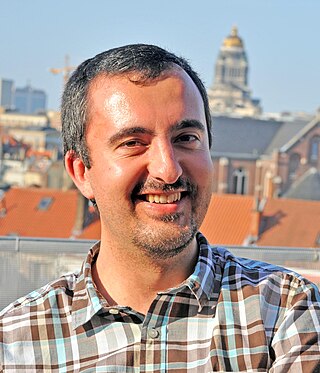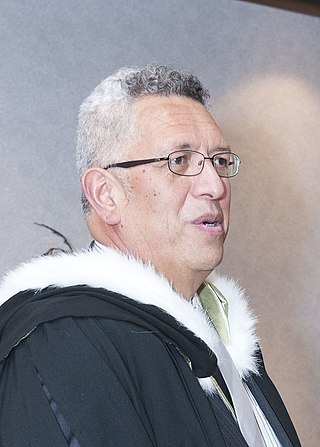
Tourism is travel for pleasure, and the commercial activity of providing and supporting such travel. The World Tourism Organization defines tourism more generally, in terms which go "beyond the common perception of tourism as being limited to holiday activity only", as people "travelling to and staying in places outside their usual environment for not more than one consecutive year for leisure and not less than 24 hours, business and other purposes". Tourism can be domestic or international, and international tourism has both incoming and outgoing implications on a country's balance of payments.

Auckland University of Technology is a university in New Zealand, formed on 1 January 2000 when a former technical college was granted university status. AUT is New Zealand's third largest university in terms of total student enrolment, with approximately 29,100 students enrolled across three campuses in Auckland. It has five faculties, and an additional three specialist locations: AUT Millennium, Warkworth Radio Astronomical Observatory and AUT Centre for Refugee Education.

Hospitality is the relationship of a host towards a guest, wherein the host receives the guest with some amount of goodwill and welcome. This includes the reception and entertainment of guests, visitors, or strangers. Louis, chevalier de Jaucourt describes hospitality in the Encyclopédie as the virtue of a great soul that cares for the whole universe through the ties of humanity. Hospitality is also the way people treat others, for example in the service of welcoming and receiving guests in hotels. Hospitality plays a role in augmenting or decreasing the volume of sales of an organization.

Sustainable tourism is a concept that covers the complete tourism experience, including concern for economic, social and environmental issues as well as attention to improving tourists' experiences and addressing the needs of host communities. Sustainable tourism should embrace concerns for environmental protection, social equity, and the quality of life, cultural diversity, and a dynamic, viable economy delivering jobs and prosperity for all. It has its roots in sustainable development and there can be some confusion as to what "sustainable tourism" means. There is now broad consensus that tourism should be sustainable. In fact, all forms of tourism have the potential to be sustainable if planned, developed and managed properly. Tourist development organizations are promoting sustainable tourism practices in order to mitigate negative effects caused by the growing impact of tourism, for example its environmental impacts.
This is a bibliography of works related the subject of tourism.

The Journal of Sport & Social Issues is a peer-reviewed academic journal that publishes papers in the field of sociology. The journal's editor is C. L. Cole. It has been in publication since 1977 and is currently published by SAGE Publications.

Noel B. Salazar is a sociocultural anthropologist known for his transdisciplinary work on mobility and travel, the local-to-global nexus, discourses and imaginaries of 'Otherness', heritage, cultural brokering, cosmopolitanism and endurance.
Alison Donnell is an academic, originally from the United Kingdom. She is Professor of Modern Literatures and Head of the School of Literature, Drama and Creative Writing at the University of East Anglia. She was previously Head of School of Literature and Languages at the University of Reading, where she also founded the research theme "Minority Identities: Rights and Representations". Her primary research field is anglophone postcolonial literature, and she has been published widely on Caribbean and Black British literature. Much of her academic work also focuses questions relating to gender and sexual identities and the intersections between feminism and postcolonialism.
Hillary du Cros is an Australian archaeologist and cultural tourism teacher in Hong Kong and Macau. She is currently Associate Professor, Hong Kong Institute of Education, teaching in the area of Cultural Tourism in the Department of Cultural and Creative Arts. She has made significant contributions to the challenge of developing cultural heritage sites, including in various journals and full-length books.
The Pennsylvania State University School of Hospitality Management is located at the main campus of The Pennsylvania State University in University Park, Pennsylvania and serves over 500 students. SHM is one of the three oldest continually-operating hospitality management programs in the United States and offers a Bachelor of Science (B.S.), Master of Professional Studies (M.P.S.) and Doctor of Philosophy (Ph.D.) in Hospitality Management. The B.S. Degree offers an optional minor in Entrepreneurship and Innovation.

Ngahuia Te Awekotuku is a New Zealand academic specialising in Māori cultural issues and a lesbian activist. In 1972, she was famously denied a visa to visit the United States on the basis of her sexuality.
Tourism impacts tourist destinations in both positive and negative ways, encompassing economic, political, socio-cultural, environmental, and psychological dimensions. The economic effects of tourism encompass improved tax revenue, personal income growth, enhanced living standards, and the creation of additional employment opportunities. Sociocultural impacts are associated with interactions between people with differing cultural backgrounds, attitudes and behaviors, and relationships to material goods. Tourism can also have significant political impacts by influencing government policies and promoting diplomatic relations between countries. Environmental impacts can be categorized as direct effects including environmental damage, wildlife destruction, deforestation, water pollution, and indirect effects, such as increased harvesting of natural resources to supply food, indirect air and water pollution. Tourism also has positive and negative health outcomes for local people. The short-term negative impacts of tourism on residents' health are related to the density of tourist's arrivals, the risk of disease transmission, road accidents, higher crime levels, as well as traffic congestion, crowding, and other stressful factors. In addition, residents can experience anxiety and depression related to their risk perceptions about mortality rates, food insecurity, contact with infected tourists, etc., which can result in negative mental health outcomes. At the same time, there are positive long-term impacts of tourism on residents' health and well-being outcomes through improving healthcare access positive emotions, novelty, and social interactions.
Kim Louise Pickering is a New Zealand composite materials engineer. She is currently a full professor at the University of Waikato.

Hirini Matunga is a New Zealand town planning academic and as of 2019 is a full professor at the Lincoln University. He has written on Māori tourism as well as indigenous thinking within the field of urban planning.
Chellie Margaret Spiller is a New Zealand academic and is of Māori descent and as of 2019 is a full professor at the University of Waikato.
Hazel Mary Tucker is an English-born New Zealand social anthropologist. She is Professor of Tourism at the University of Otago.
Alison Phipps OBE FRSE FRSA FAcSS a University of Glasgow professor of Languages and Intercultural Studies and holds the first UNESCO Chair in Refugee Integration through Languages and the Arts. She has been awarded the Minerva Medal of the Royal Philosophical Society and is a Fellow of the Royal Society of Arts, and Fellow of the Academy of Social Sciences.

Tourism in Estonia refers to the overall state of the tourism industry in the Baltic nation of Estonia. It is a key part of the country's economy, contributing 7.8% to its GDP, and employing 4.3% of its population. In 2018, tourism and other related services counted for over 10.8 percent of Estonia's exports. Tourism is increasing rapidly in Estonia: the number of tourist arrivals—both domestic and international—has increased from 2.26 million in 2006 to 3.79 million in 2019. Estonia was also ranked the 15th-most safest country to visit in 2017, according to safedestinations.com, scoring 8.94 out of 10 on their list. In a 2018 report published by the OECD, they concluded that most international tourists come from places like Finland, Russia, Latvia, Germany, and Sweden.

Tracy Berno is a New Zealand academic, specialising in cross-cultural psychology and food. As of 2022 she is a full professor of the culinary arts in the School of Hospitality and Tourism at Auckland University of Technology.









